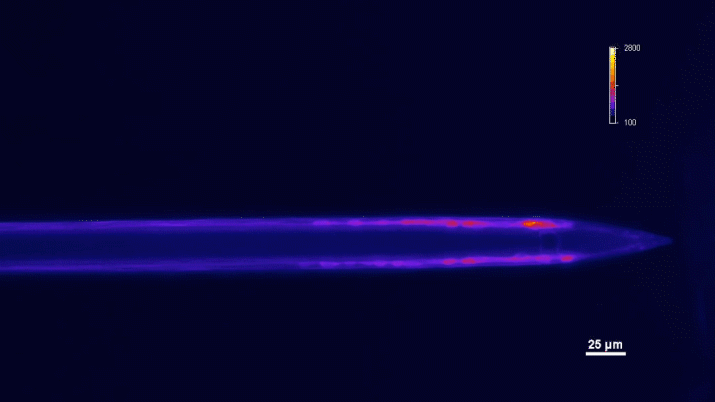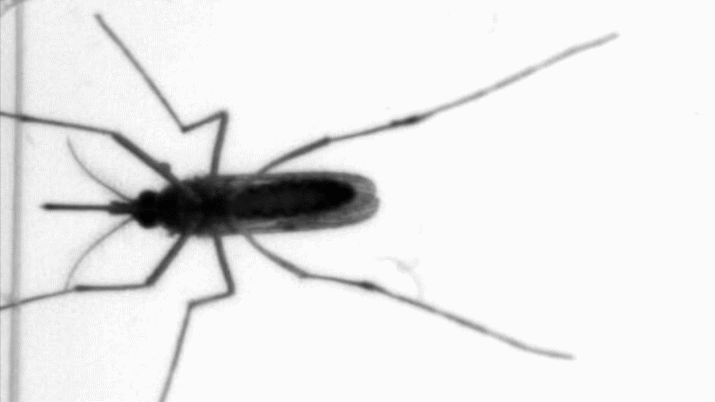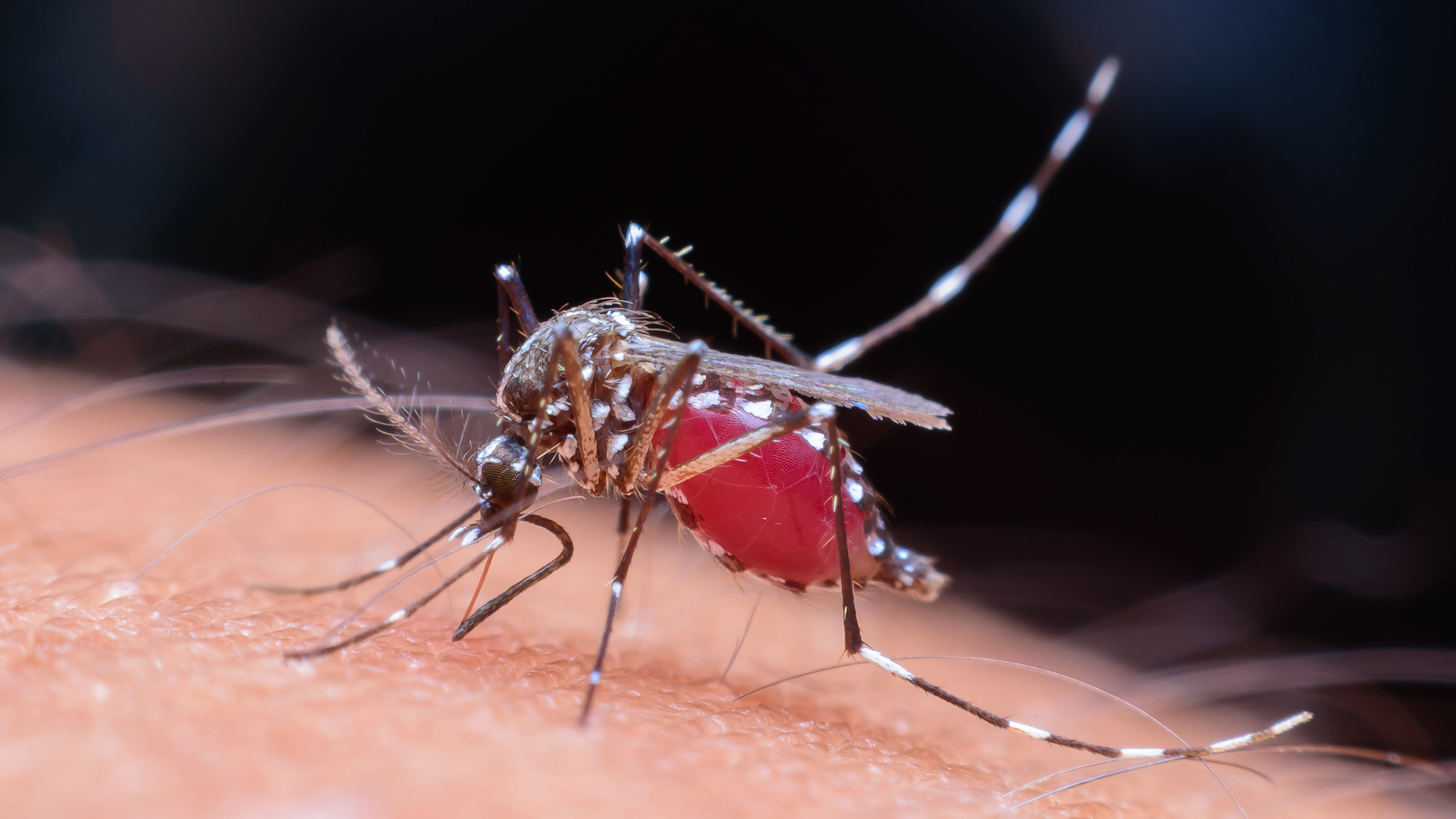Mosquito 'tongue' neurons ignite like fireworks at taste of human blood
Mmmm .... blood.

What does your blood taste like to a mosquito? Researchers recently discovered that the delectable flavor of human blood sends sensory neurons igniting like fireworks in a mosquito's syringe-like "tongue," a piercing mouthpart called a stylet.
Only female mosquitoes feed on blood, and only to nourish their developing eggs — otherwise, they drink flower nectar. To better understand the mosquitoes' attraction to human blood, scientists genetically modified Aedes aegypti mosquitoes to make the insects' taste-related neurons emit fluorescent light during activation.
The researchers then used fluorescent microscopy to detect neurons firing in the mosquitoes' stylets as the insects fed on real human blood and other liquid meals, according to a study published Oct. 12 in the journal Neuron.
Related: Why human blood drives mosquitoes wild
Biologists who study mosquitoes often do so at the cost of their own skin, allowing the insects to bite them to reveal blood feeding behavior in action. For the new study, the scientist turned to a device called a biteOscope. Designed by another research team to "give scientists and their skin a reprieve," the biteOscope is a small open platform with a membrane over pockets that hold liquid. It offers mosquitoes a chance to drink their fill in an environment that mimics a skin-covered host, while also allowing scientists to observe mosquito feeding behavior and collect data without sacrificing their own skin, the biteOscope creators wrote on Sept. 22 in the journal eLife.
The mosquito researchers observed neuron activity in mosquito stylets as their subjects approached nectar, blood, and an artificial "blood" mixture made of glucose, sodium chloride and sodium bicarbonate, in concentrations "within the range of standard blood values for vertebrate species," according to the study. The artificial blood also included adenosine triphosphate (ATP), a compound in blood that transports energy to cells and which prior studies have shown to be attractive to mosquitoes, the scientists reported.
"To understand the properties of blood-sensitive neurons, we needed a stable mixture with a known composition that we could use to reliably activate blood-sensitive neurons in the stylet," said lead study author Veronica Jové, a doctoral candidate and a Howard Hughes Medical Institute (HHMI) Gilliam Fellow at The Rockefeller University in New York City.
Get the world’s most fascinating discoveries delivered straight to your inbox.
"Special mystery stuff"
In the presence of real blood and the lab-made mixture, a subset of the mosquitoes' stylet neurons — roughly half of the 40 found in a female mosquito's stylet — flared brightly, but those neurons didn't activate at all at the taste of the sweet nectar, according to the study.
However, deciphering exactly what our blood might taste like to a mosquito — Are we sweet, because blood contains glucose? Salty, because of sodium chloride? Somewhere in between? — is tricky, said study co-author Leslie Vosshall, a professor and investigator with HHMI at The Rockefeller University.
"There is nothing like this in the human experience," Vosshall said in a statement. That's because one of the key components that draws mosquitoes to blood is ATP, which doesn't have a "taste" on the human tongue, Jove told Live Science in an email.
Vosshall confirmed this firsthand by sampling the lab-made ATP-infused mixture herself.
"It doesn't have a taste at all," she said in the statement. "ATP is this special mystery stuff that tastes like nothing to humans. But it's got to be incredibly exciting and rewarding for the mosquito."
Humans experience five basic tastes: sweet, sour, umami, bitter, and salty, Jové said. While the researchers couldn't say for sure exactly which flavors individually tickle mosquitoes' tastes, we may share an appreciation for saltiness — our perception of salt flavor is triggered by sodium chloride, or NaCl, which was present in both blood and lab-made blood, when the mosquitoes' stylet neurons fired, Jové said.
Pinpointing what makes human blood so delectable to mosquitoes could be a first step toward producing deterrents that make us less delicious, and could thereby reduce our chances of being bitten, the researchers said in the statement. Identifying these factors could also shed light on diseases such as dengue and Zika, which mosquitoes spread by feeding on infected people, Jové told Live Science.
"An understanding of how mosquitoes taste blood to initiate blood-feeding behavior is fundamental for understanding how vector-borne diseases are transmitted across the globe," she said.
Originally published on Live Science.

Mindy Weisberger is a science journalist and author of "Rise of the Zombie Bugs: The Surprising Science of Parasitic Mind-Control" (Hopkins Press). She formerly edited for Scholastic and was a channel editor and senior writer for Live Science. She has reported on general science, covering climate change, paleontology, biology and space. Mindy studied film at Columbia University; prior to LS, she produced, wrote and directed media for the American Museum of Natural History in NYC. Her videos about dinosaurs, astrophysics, biodiversity and evolution appear in museums and science centers worldwide, earning awards such as the CINE Golden Eagle and the Communicator Award of Excellence. Her writing has also appeared in Scientific American, The Washington Post, How It Works Magazine and CNN.




